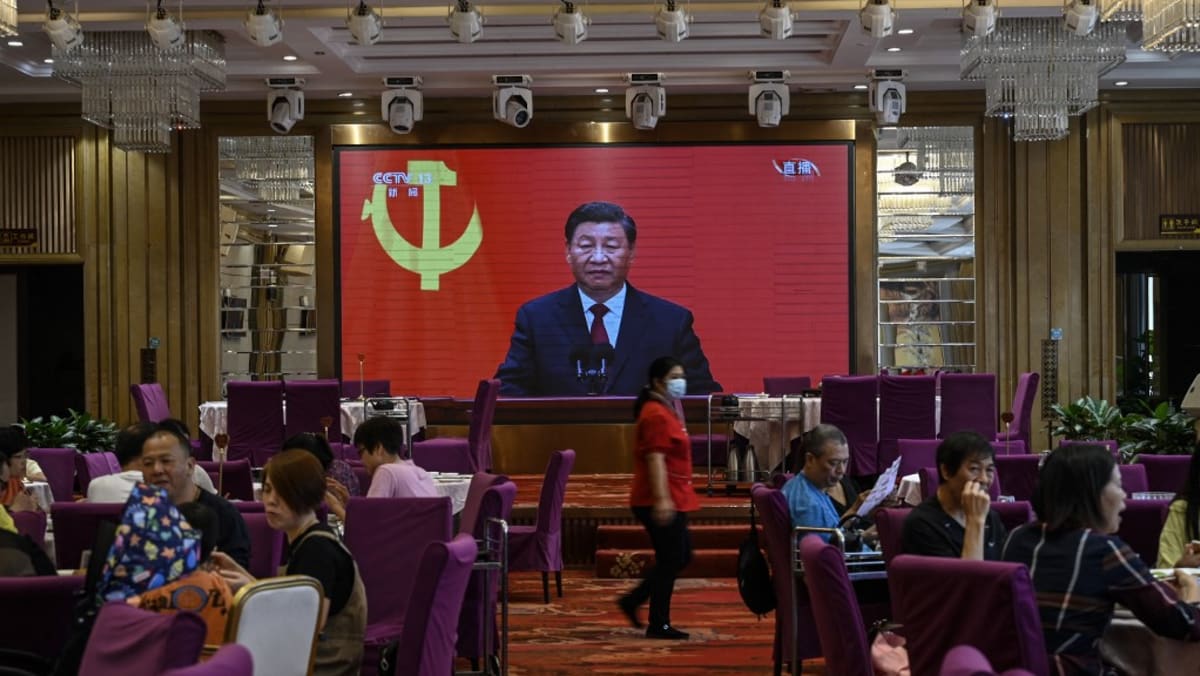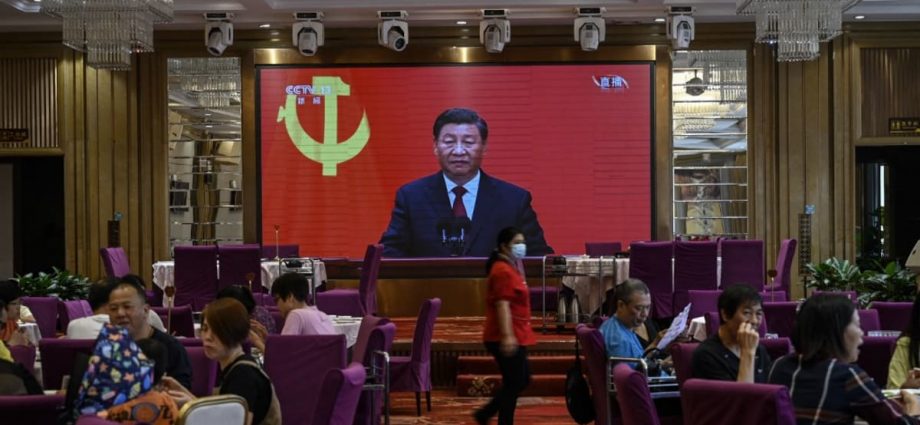
ECONOMIC WOES STILL LOOM LARGE
In all of this, the critical question is whether Xi will become a more abrasive global figure unbound by restrictions on his tenure and surrounded in the leadership by allies who are unlikely to challenge him.
Are there risks that his reach on issues like Taiwan will exceed his grasp?
The short answer is we don’t yet know. But Xi will likely have been further emboldened by his continued rise.
Xi is also a relentless aggregator of power. Since his elevation in 2007 to the Standing Committee, he has moved relentlessly.
In the decade since he was confirmed in 2012 as the general secretary of the Chinese Communist Party he has, step by step, consolidated power.
This all comes with the important caveat that behind the scenes in an opaque Chinese system, politicking can be brutal. Power struggles, sometimes violent, have scarred Chinese Communist Party history since its founding in Shanghai in 1921.
Xi would not need reminding that what the Communist Party giveth, it can also taketh away.
His own family’ experience is a case in point. Xi’s father Xi Zhongxun, a member of the first generation, with Mao Zedong, of Communist leaders, was purged in 1962. He was accused of being a member of a rightist clique.
Xi Jinping tasted the bitterness of that experience. He was shipped off to Shaanxi province, south-west of Beijing, in the early 1960s, where he spent six years in the countryside.
Xi senior was rehabilitated after the Cultural Revolution. Xi junior completed a degree in chemical engineering at Tsinghua University, one of China’s premier universities, before making his way up party ranks with various provincial assignments.
History will not be absent from Xi’s calculations, nor will he overlook the historical significance of the National Party Congress just concluded in Beijing.

